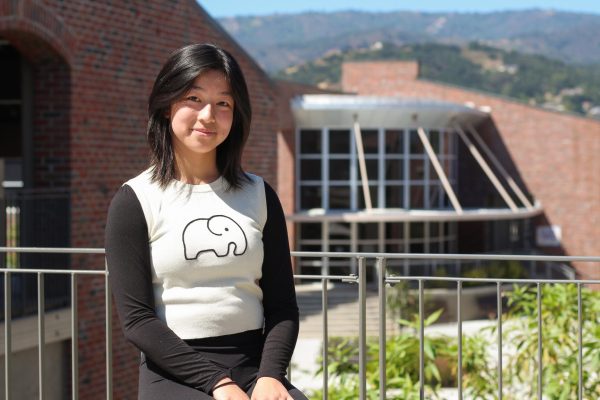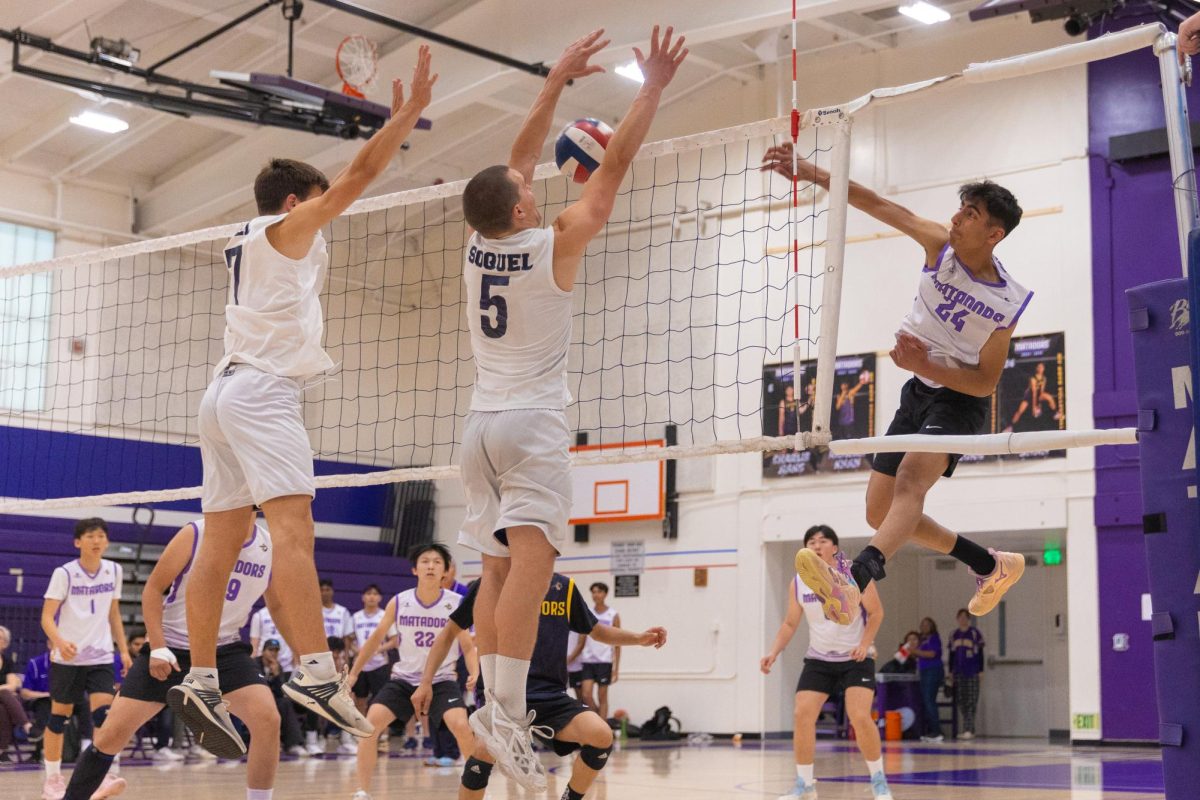SY: Hello everyone! My name is Shannon Yu and I’m joined here with Darya Pereverzeva, and we’re going to see what her career has been [like] so far. So, what sports do you currently play?
DP: I just finished playing water polo [during the] season, and now I’m doing wrestling, and on the side I do powerlifting, Muay Thai, I’m starting kickboxing, and I do judo.
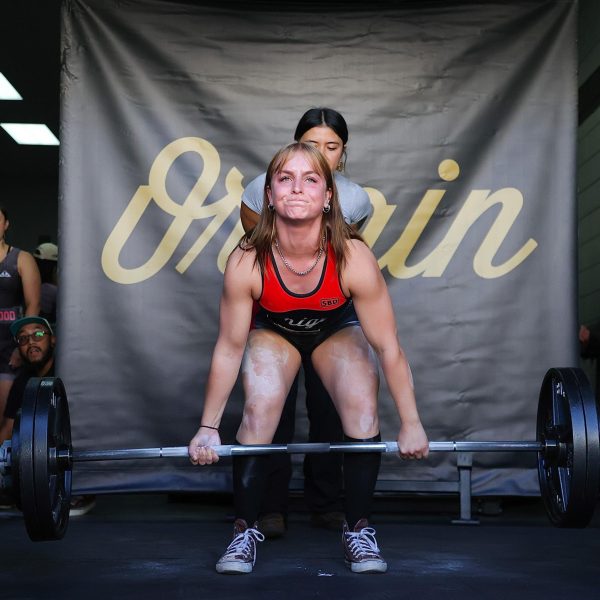
SY: Why did you decide to do wrestling?
DP: I’ve been doing fighting [sports] since I was a little kid. I’ve been doing judo since I was four, and I’ve just always loved the idea of combat sports and being as strong as I can.
SY: Who introduced you to all these sports?
DP: My dad did. He didn’t start off doing judo but now he’s a black belt and I train with him, so he definitely progressed a lot faster than me in judo, because I stemmed off to other sports, but I love training with him.
SY: And how do you train for wrestling, such as weight training, or…?
DP: To get better at wrestling, you just wrestle, to be honest. Wrestling is a very specific sport, and I think it’s probably one of the hardest sports that you could find at a school. I think once you wrestle, everything else in life becomes kind of easier. I do weight lifting and that definitely has helped, but I will say strength has nothing to do with wrestling a lot of times. I think a lot of it is very much technique and conditioning.
SY: How do you get better at your technique?
DP: Just repetition. Repetition, a hundred percent. Keep drilling with your partner. If you put in a hundred percent in your practices, you’ll get a hundred percent out of your tournaments, a hundred percent.
SY: Do you wrestle outside of school?
DP: I have. I go to the UFC (Ultimate Fighting Championship) gym and there are some wrestling classes, or I will just hang out with my friends at UFC gyms and we’ll do a little sparring match of some sort, or drill, but other than that, no. I usually use my judo background, which helps with throws or pins, or my jiu-jitsu background, which helps with takedowns, etc., to help with wrestling.
SY: How would you say your friends have helped you through your wrestling career?
DP: I have a lot of friends who wrestle, and a lot of it is also just mental support, because it’s always very much so on you if you mess up, and I think that friends really keep you in check and tell you to not give up, because a lot of times it does play on your ego, and I think the biggest thing is knowing how to let go of it and having people around you who have done that too.
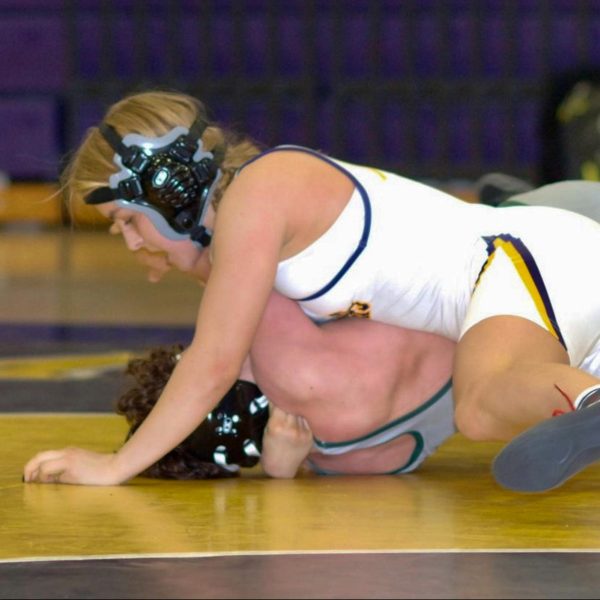
SY: What are the pros and cons of being in a male-dominant sport?
DP: I am friends with a lot of guys, and it’s just a very different environment, I would say. A lot of times, if you don’t know how to talk to them, or know how to be around them, it can be hard, but because I’ve been friends with guys for a really long time, it’s never been a problem. I think the biggest thing is [that] the emotional part of it is really hard to talk about, but the support you get is really unconditional, and I think it’s probably one of the truest support and love that you will get from someone.
SY: How many girls are there in wrestling?
DP: There’s a lot of girls in general, there’s just a lot. I think when I first started, there were barely any and I would wrestle mainly guys, but now I will go to tournaments and there’s girls who are very good and do very great, and there’s now at least, I think, seven girls on our team?
SY: How important is a focus on sportsmanship to you?
DP: Sportsmanship in what ways?
SY: In wrestling, just being a good teammate at all times, stuff like that?
DP: I think sportsmanship is really important, but I think also accountability is one of the most important things you could find, because if it were a team sport, sportsmanship would be a little more important, but I think in this case, accountability is very important. I think we all keep each other accountable for what we did. So if I mess up, if I am a little too mean that day, or if I’m pinning someone very unnecessarily hard, or I’m being egotistical and stuff like that, people keep each other in check, and I think that’s the biggest thing we have in sportsmanship. It’s not necessarily being forgiving, it’s more just keeping each other in check.
SY: What are your thoughts on team sports versus individual sports?
DP: It’s a very interesting concept, because when I did water polo, I feel like there was a lot more tension with each other, because you could blame it on each other. You could find ways where you [could] get out of it, and it could not be your fault. You could warm the bench, you could just not be even in the game. But in wrestling, you’re on that mat, and you can’t really sub out. It’s all you. In that moment, everyone’s watching you, everyone from the stands is cheering you on, and if you mess up that one little movement, it’s on you, and you just sit there and you wonder about that.
SY: What has been most challenging for you in terms of wrestling?
DP: I guess mainly the conditionings, honestly, but I think you just get over that in a bit. I think the biggest thing is probably just also learning to take accountability for things. You always try to blame other things in your life, or make excuses, but I think you get to a point where you realize, ‘You know what? Maybe it’s me.’
SY: What’s your favorite memory from wrestling? What makes it so much fun?
DP: I think my favorite memory from wrestling was when I had my first ever match, ever in wrestling, and I went against this guy and I made him quit wrestling because I threw him and I pinned him, and everyone went insane. And I think that’s what really stuck with me [be]cause I realized ‘Maybe I do have some potential.’
SY: Oh yeah, for sure. How do you balance your sports life with your school life?
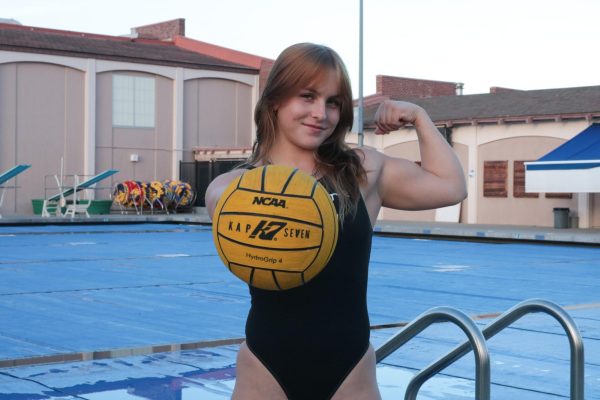
DP: It’s hard. I work three jobs, as well, and I do around three sports. I mean, I’m a senior now, so I have less classes, but it’s definitely cut down on my social life, and it’s definitely something I have to be constantly using my free time for, not relaxing but more so doing my homework or drilling stuff, or going to extra practices. And I think a big thing is definitely just letting go of that social life sometimes. And it sucks, but, you know, if you want to do something you’ve never done, you gotta do something you never did.
SY: Do you have any tips for other multi-sport athletes who might also struggle with time management?
DP: I think a big thing is to remember that your body also needs the same recovery time. I think right now I’m currently a little bit injured because I am trying to balance powerlifting and wrestling and it’s a little hard on the body and I think the biggest thing people don’t realize is even though you go as hard as you can, you know, on wrestling and powerlifting, your body also needs that same recovery time. And I think that’s what a lot of people don’t do.
SY: So who or what inspires you to keep playing?
DP: Honestly, the people around me. I think I’ve seen a lot of people, especially in the higher divisions or people that I’ve met. There’s definitely been some teammates that I’ve had who just have the most immaculate drive. Anytime I lose a match, I’m more motivated, to be honest. I’ve never seen a loss as an actual failure. I think a loss has always been more of a win to me than a win. Because, you know, when you win, the person just wanted to lose more than you, and that’s the fact of it. But when you lose, you learn so much more about yourself, and I think that’s what I love about wrestling. And I think just losses and matches have probably inspired me the most to get better.
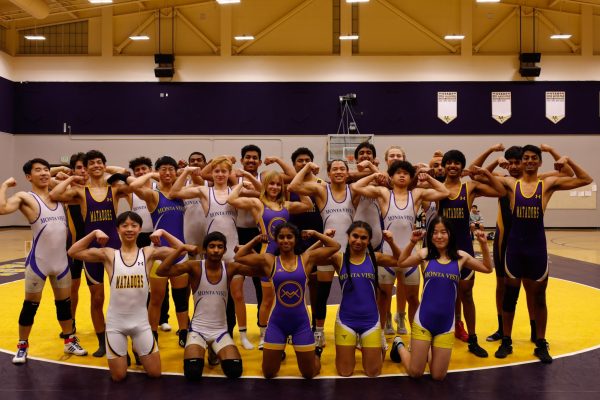
SY: What’s your plan for the future, then?
DP: I’m [currently getting] recruited for wrestling in college and I’ve already seen the school in northern Michigan and I really liked it, but you know, I don’t know. I might switch to competing completely in powerlifting and kickboxing instead. And either way, wrestling mentality and wrestling conditioning is going to help me immensely with that.
SY: And do you have any closing thoughts or remarks? Maybe a little tip for your underclassmen?
DP: Join wrestling. That’s my tip.
SY: Thank you so much to Darya for joining us on this episode. I’m Shannon, and thanks for tuning in.



